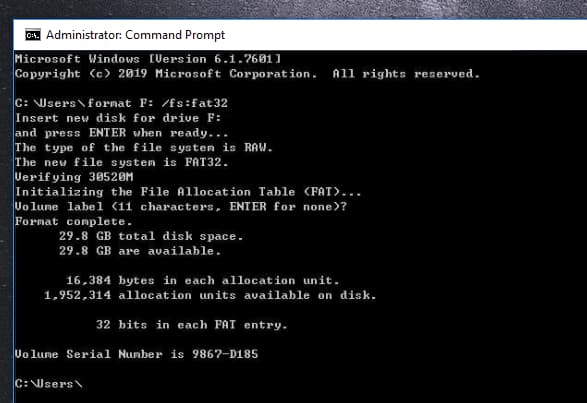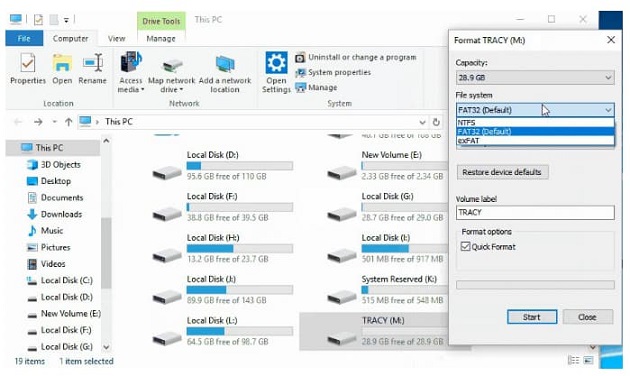How to Recover Files from Raw SD Card
To resolve the "Sector Not Found" issue and recover data from your 8GB SD card, first, remove the card from the device and connect it to a computer via an SD card reader. Then, download and install a reliable SD card recovery software, such as EaseUS Data Recovery Wizard. Run the software, select the SD card as the target drive, and follow the on-screen instructions to scan for recoverable files. If the card is severely damaged, you may need to format it.
The term "RAW" on an SD card is often misunderstood. In reality, it's not a file format, but rather an indication that the system can't recognize the card's file system. When this happens, the files appear as "RAW" and are inaccessible, much like a digital negative that can't be used.
You can recover a RAW-formatted SD card using CMD and then convert its format to a normal station format. This involves converting the RAW format to other readable file formats like NTFS or FAT, allowing you to access the data stored on the card.
- Quick Navigation
- Part 1. How to Recover Data from RAW SD Card
- Part 2. Step-By-Step Guide For How to Convert RAW SD Card to FAT32
- Part 3. Guide to Convert RAW SD card to NTFS
Part 1. How to Recover Data from RAW SD Card
The Deep Data Recovery tool is a brilliant solution for recovering files from a RAW SD card. Whether files are deleted or inaccessible, this software allows for easy retrieval with just one click. Using Qiling, you can restore RAW files from the SD card without any hassle, and the tool also features RAW drive recovery, which can recover from RAW file system, partition table damage, unformatted media/drive, and more.
Your Safe & Effective RAW SD Card Recovery Software
- The tool offers both Quick Scan and Deep Scan Mode for a more thorough file recovery from an SD card, ensuring effective data recovery regardless of the situation.
- Comprehensive file recovery from various storage media, including hard drives, USB flash drives, SD cards, digital cameras, and other external storage devices.
- This software supports a wide range of file formats and offers quick recovery options after various data loss scenarios, including deletion, formatting, lost partition, RAW drive, wrong operation, virus attack, system failure, and other problems.
The software is available for download on both Windows and Mac systems. Install it and follow the steps to recover files from an SD card RAW file system on either a Windows PC or Mac.
Step 1: Run Qiling:
To retrieve files from a storage space, start the program and choose the file type you want to recover. Connect your SD card and click "Next". You can also select the "All File Types" option for recovering RAW SD card data.

Step 2: Specify The Location:
The software will search the RAW SD card for deleted, lost, or corrupted files after clicking the "Scan" button from the interface's file system.

Step 3: Preview & Recover Files from Raw SD Card:
Once the scan is finished, the files will be displayed on the screen. You can further choose the "Deep Scan" mode if the desired files didn't appear in the results. Select the files and have a preview to ensure that your file is in working condition.
The software Deep Data Recovery can help recover files from a RAW SD card by following these steps: tap on the "Recover" button after scanning the card, and wait as the files are restored. This tool is preferred by users for its reliability, making it a better option than other recover RAW SD card software.

Part 2. Step-By-Step Guide For How To Convert RAW SD Card To FAT32
The RAW SD card won't format and its data becomes unusable. However, formatting it to FAT32, which has the highest compatibility among operating systems, is a better option. While the process can be done using a graphical user interface, using the Command Prompt is a more efficient way, requiring minimal clicks and making the conversion straightforward and fast.
To convert a RAW SD card to FAT32 format, start by creating a backup of the drive to prevent data loss. Then, use the Disk Management tool in Windows to initialize the disk, which will allow you to access it. Next, use the CONVERT command to change the file system from RAW to FAT32, but note that this command cannot be used on a disk that is currently RAW. Finally, once the conversion is complete, you can use the Disk Management tool again to verify that the SD card is now formatted with the FAT32 file system. This process should be done carefully and in sequence to ensure a successful conversion.
Step 1: To format a RAW drive, run the Command Prompt as an administrator, type "format F: /fs:fat32" (where F is the drive letter assigned to the RAW drive), and press the Enter key. This will initiate the formatting process.
Step 2: Press the Enter key and specify the partition label, then exit CMD after the conversion is done. The time taken by CMD depends on the card size.

If you have a deep understanding of CMD, you can also use diskpart to convert a RAW card to FAT32. This is a more advanced approach and requires some technical expertise.
Part 3. Guide to Convert RAW SD card to NTFS
We're emphasizing using CMD to convert the file system because a RAW drive needs to be formatted before it can be used again, which would erase all data. To avoid this, we can try to fix the RAW SD card without formatting using CMD. If that fails, Qiling can be used as a last resort to recover the data.
To convert a RAW SD card to NTFS, you can follow these steps: First, insert the SD card into your computer and open the Disk Management tool. Then, right-click on the SD card and select "Format" to initialize it.
To format a drive, open the Command Prompt as an administrator, type "diskpart" and press Enter. Then, type "H: /fs: NTFS" (assuming H is the drive letter you want to format) and press Enter again. This will format the drive with the NTFS file system.
To recover data from a RAW SD card, first, use Qiling software to scan the card and recover any recoverable files. Once the files are recovered, you can then use a card reader or a computer's built-in SD card reader to access the card. If the card is still not accessible, you may need to use a third-party tool, such as EaseUS or DiskGenius, to fix the card's file system.
Open the File Explorer, connect the SD card to the computer, and right-click on the RAW drive to select the "Format" option.

In the format window, select the NTFS system from the File System option's drop-down menu and click the "Start" button.
To convert the SD card file system to NTFS, a pop-up window will appear asking for confirmation. Click the "OK" button to proceed, and the SD card file system will be converted to NTFS, allowing the card to be used again.
Users face difficulties when their SD card becomes RAW, but this guide provides a solution to open an SD card without formatting. If the SD card cannot be fixed, a memory card recovery software can be used to retrieve important files from the RAW drive.
Related Articles
- Recover Data from exFAT SD Card
- Recover Raw Photos from SD Card
- Recover Data from Raw USB Flash Drive
- How to Recover Data from RAW SSD
- How to Recover Files from Broken/Damaged Micro SD Card
- Recover Audio Files from SD Card
- How to Recover Data from Raw External Hard Drive
- Convert RAW to NTFS without Formatting/Losing Data
- Do RAW Drive Recovery and Fix RAW Drive to NTFS/FAT